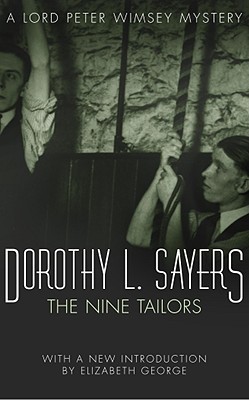Summer has been busy and -- as some of you have probably gotten sick of being reminded -- my laptop gave up the ghost. Hence, my failure to provide monthly reading updates. However, my review compulsion, and love of discussing books with my friends here, won't let me go without giving a few lines on what I've been reading in the past months.
The Nine Tailors by Dorothy L Sayers
It's not my favorite Sayers work, but that's probably my own fault for rushing through it without making an effort to understand the change ringing. Nevertheless, it has some gorgeous prose and a just-surprising-enough-but-not-too-much mystery solution.
Doctor Adrian: A Story of Old Holland by Deborah Alcock (reread)
(image from scrollpublishing.com)
This poster of Dutch Anabaptist Dirk Willems rescuing his Catholic pursuer hangs in my room. The novel Doctor Adrian takes place in the Dutch provinces, ravaged by Philip II's inquisition. I probably should mock its sentimental Victorian prose and penchant for treacherous Jesuits in disguise... but I rather like both. I like still more the title character -- a fictional protege of Andreas Vesalius -- with his fictional friend, Dirk Willems' son. Still more I like the heroic portrayal of the Prince of Orange, who is the primary focus of the next book I read...
Stories of the Reformation in the Netherlands by Ruth Gordon Short (reread)
(Praise for the Prince of Orange and other Protestants, mostly opprobrium for Philip II and his minions, though with some occasional sympathy for Charles V. That's probably all most of you care to know. Since I was having all my Orange feelings several months ago when I wasn't posting, you're all spared the recital.)
I Am Hutterite: The Fascinating True Story of a Young Woman's Journey to Reclaim Her Heritage by Mary-Ann Kirkby
Listening to this as an audiobook helped humanize the communal Anabaptist group every prairie Canadian knows on sight. Mary-Ann's life growing up in the colony was in many ways warm, loving, and idyllic. Her description of her family showed real Christianity in their lives, but as with most exclusive groups, corrupt power dynamics rose in the colony, and eventually drove her family to the difficult choice of starting a new life in the "English" world.
To Drink of His Love by Mary Wuestefeld
A young woman's experiences escaping the clutches of legalistic religion that had made her question how the gospel could really be good news.
 There is no frigate like a book
There is no frigate like a book

